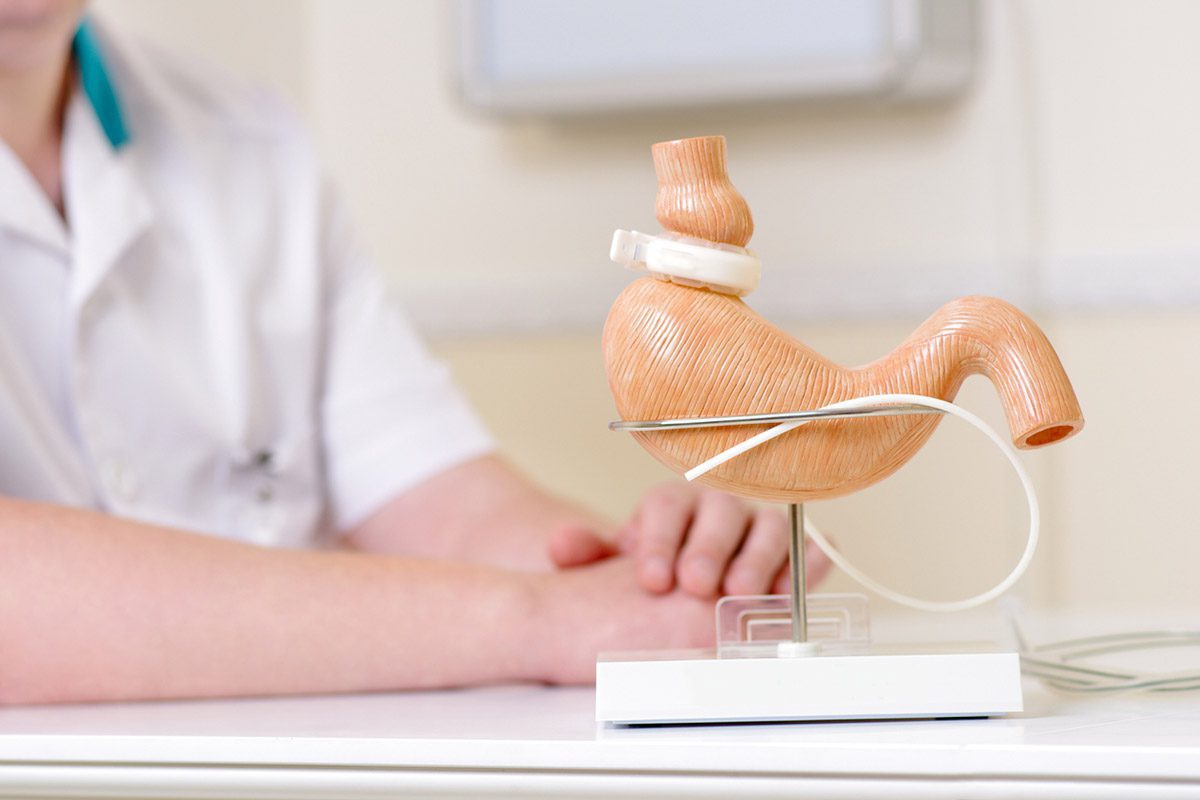Because this piece does not have an abstract, we have provided for your benefit the first 3 sentences of the full text.
To the Editor: Depression is the most prevalent mood disorder, affecting over 300 million people worldwide, and is a globally significant public health concern. More than 1 in 20 Americans suffer from depression. It is estimated that by 2020 depression will be the second most common cause of disability after ischemic heart disease.
Does Vitamin D Deficiency Cause Depression?
To the Editor: Depression is the most prevalent mood disorder, affecting over 300 million people worldwide, and is a globally significant public health concern.1 More than 1 in 20 Americans suffer from depression.2 It is estimated that by 2020 depression will be the second most common cause of disability after ischemic heart disease.3 Without an established etiology, a combination of factors may contribute to the development of depression including, but not limited to, genetics, stress, substance abuse, low socioeconomic status, isolation, grief, limited social support, and certain disabilities. Hypovitaminosis can result in many different conditions, some of which have an emotional impact.4 Vitamin D deficiency is associated with depression in some people.5
Vitamin D and Depression. There is no specific mechanism to explain how vitamin D deficiency might yield affective illness. Vitamin D receptors in the brain at the prefrontal cortex, hypothalamus, and substantia nigra play a role in regulating emotions.6 Vitamin D regulates serotonin levels, and vitamin D deficiency leads to diminishing serotonin concentrations.7 Low serotonin levels could be an etiology for inducing clinical depression.8
Vitamin D is hypothesized to increase the expression of genes encoding tyrosine hydroxylase, which regulates the synthesis of dopamine and norepinephrine.9,10 A decrease in the brain levels of these monoamine neurotransmitters can result in depression.8 Vitamin D is also responsible for maintaining the homeostasis of calcium and reactive oxygen species by controlling the expression of genes. With a deficiency, calcium and reactive oxygen species concentrations are increased, thereby augmenting cytokines and inflammatory markers that might impact the immune system and induce stress, which secondarily may cause depression.11
A meta-analysis5 involving 8,815 subjects from 3 prospective observational studies documented that there is an elevated risk of affective illness in individuals with low vitamin D levels. A study11 of the effect of cigarette smoking on hypovitaminosis D and depression found significantly more depression in smokers compared to nonsmokers. The nicotine in cigarette smoke might interfere with intestinal calcium absorption, leading to reduced serum calcium levels. These decreased concentrations elevate parathyroid hormone and alkaline phosphatase levels, which eventually can result in vitamin D deficiency.12
Hypovitaminosis D is also documented in patients with seasonal affective disorder,13 poststroke depression,14 and other medical conditions such as diabetes mellitus,15 spinal cord injury,16 and chronic renal disease.17 Among patients hospitalized for an affective illness, depression reportedly is more severe in those with coexistent vitamin D deficiency.18
Discussion. Hypovitaminosis D is associated with depression.11 Vitamin D prescribed as an adjunct to antidepressant pharmacotherapy may diminish depressive symptoms.19 Assays measuring vitamin D concentrations in patients with depression could have diagnostic and therapeutic implications. Reliance on such laboratory analyses is a clinical decision; for example, such testing might be particularly indicated in patients unresponsive to previous therapies. Suboptimal vitamin D levels mandate supplementation.
Clinicians should stress the importance of vitamin D in the diet and adequate sun exposure, as well as the risks of overexposure. Greater physician and patient awareness of hypovitaminosis is recommended. Vitamin D levels should be monitored during health checkups, especially in patients with long-standing affective symptoms, as such monitoring might help reduce the prevalence of overt depression. Vitamin D supplementation, when indicated, can sometimes be a powerful adjunct pharmacotherapy for patients with depression.
References
1. World Health Organization. Depression fact sheet. http://www.who.int/mediacentre/factsheets/fs369/en/. Accessed September 7, 2018.
2. Centers for Disease Control and Prevention. Depression. https://www.cdc.gov/mentalhealth/data_stats/depression.htm. Accessed September 7, 2018.
3. Murray CJL, Lopez AD. The Global Burden of Disease: A Comprehensive Assessment of Mortality and Disability from Diseases, Injuries and Risk Factors in 1990 and Projected to 2020. Geneva, Switzerland: World Health Organization; 1996:4.
4. Rao TS, Asha MR, Ramesh BN, et al. Understanding nutrition, depression and mental illnesses. Indian J Psychiatry. 2008;50(2):77-82. PubMed CrossRef
5. Anglin RE, Samaan Z, Walter SD, et al. Vitamin D deficiency and depression in adults: systematic review and meta-analysis. Br J Psychiatry. 2013;202(2):100-107. PubMed CrossRef
6. Eyles DW, Smith S, Kinobe R, et al. Distribution of the vitamin D receptor and 1 α-hydroxylase in human brain. J Chem Neuroanat. 2005;29(1):21-30. PubMed CrossRef
7. Patrick RP, Ames BN. Vitamin D and the omega-3 fatty acids control serotonin synthesis and action, part 2: relevance for ADHD, bipolar disorder, schizophrenia, and impulsive behavior. FASEB J. 2015;29(6):2207-2222. PubMed CrossRef
8. Delgado PL. Depression: the case for a monoamine deficiency. J Clin Psychiatry. 2000;61(suppl 6):7-11. PubMed
9. Cui X, Pertile R, Liu P, et al. Vitamin D regulates tyrosine hydroxylase expression: N-cadherin a possible mediator. Neuroscience. 2015;304:90-100. PubMed CrossRef
10. Daubner SC, Le T, Wang S. Tyrosine hydroxylase and regulation of dopamine synthesis. Arch Biochem Biophys. 2011;508(1):1-12. PubMed CrossRef
11. Berridge MJ. Vitamin D and depression: cellular and regulatory mechanisms. Pharmacol Rev. 2017;69(2):80-92. PubMed CrossRef
12. Ren W, Gu Y, Zhu L, et al. The effect of cigarette smoking on vitamin D level and depression in male patients with acute ischemic stroke. Compr Psychiatry. 2016;65:9-14. PubMed CrossRef
13. Fauci AS, Braunwald E, Kasper DL, et al. Harrison’s Principles of Internal Medicine. New York, NY: McGraw-Hill Professional. 2008;17:2376.
14. Han B, Lyu Y, Sun H, et al. Low serum levels of vitamin D are associated with post-stroke depression. Eur J Neurol. 2015;22(9):1269-1274. PubMed CrossRef
15. Wang Y, Yang H, Meng P, et al. Association between low serum 25-hydroxyvitamin D and depression in a large sample of Chinese patients with type 2 diabetes mellitus. J Affect Disord. 2017;224:56-60. PubMed CrossRef
16. Williams TG, Ehsanian R, Shem KL, et al. The effect of vitamin D supplementation on pain, mood, depression, and strength in patients with spinal cord injury. PM R. 2016;8(S9):S153. PubMed CrossRef
17. Jhee JH, Kim H, Park S, et al. Vitamin D deficiency is significantly associated with depression in patients with chronic kidney disease. PLoS One. 2017;12(2):e0171009. PubMed CrossRef
18. von Känel R, Fardad N, Steurer N, et al. Vitamin D deficiency and depressive symptomatology in psychiatric patients hospitalized with a current depressive episode: a factor analytic study. PLoS One. 2015;10(9):e0138550. PubMed CrossRef
19. Sarris J. Clinical use of nutraceuticals in the adjunctive treatment of depression in mood disorders. Australas Psychiatry. 2017;25(4):369-372. PubMed CrossRef
aUniversity of Louisville School of Medicine, Louisville, Kentucky
Potential conflicts of interest: None.
Funding/support: None.
Published online: October 18, 2018.
Prim Care Companion CNS Disord 2018;20(5):17l02263
To cite: Pittampalli S, Mekala HM, Upadhyayula S, et al. Does vitamin D deficiency cause depression? Prim Care Companion CNS Disord. 2018;20(5):17l02263.
To share: https://doi.org/10.4088/PCC.17l02263
© Copyright 2018 Physicians Postgraduate Press, Inc.
Enjoy this premium PDF as part of your membership benefits!





